Pete Cowen interview: Results are all that matter as he steers Rory McIlroy and Brooks Koepka to the top of world golf
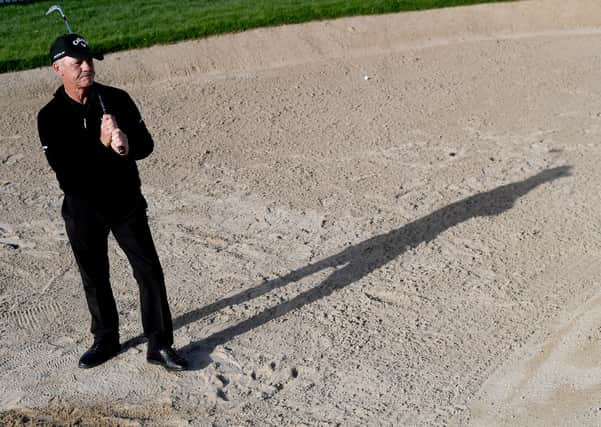

“I think I’m going to retire next year,” he would say.
He told this correspondent that towards the end of the first decade of the new century, as he approached his 60th year.
Then his players started winning major championships. First it was Graeme McDowell at the 2010 US Open, then it was Louis Oosthuizen a month later at St Andrews.
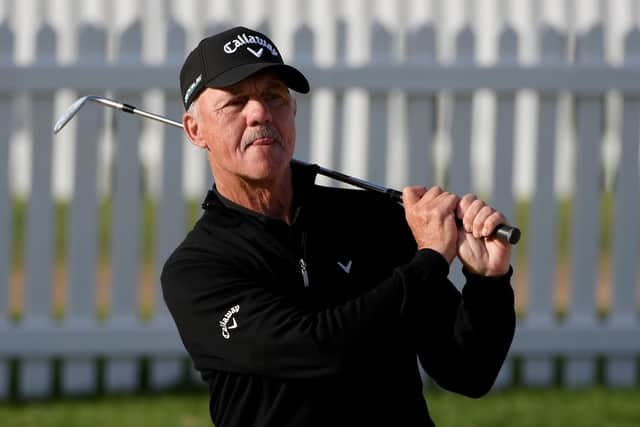

Advertisement
Hide AdAdvertisement
Hide AdEven after his long-time pupil Henrik Stenson beat Phil Mickelson at the Open in 2016, Cowen said he would not be coaching much longer.
Yet, here he still is, arguably more sought-after than ever thanks to the four major wins by Brooks Koepka and one from Gary Woodland over the last four years.
It is why when Rory McIlroy’s swing bottomed out earlier this year, it was Cowen whom he turned to.
Ask the 70-year-old from Rotherham now if retirement is on his mind and the answer is unequivocal.
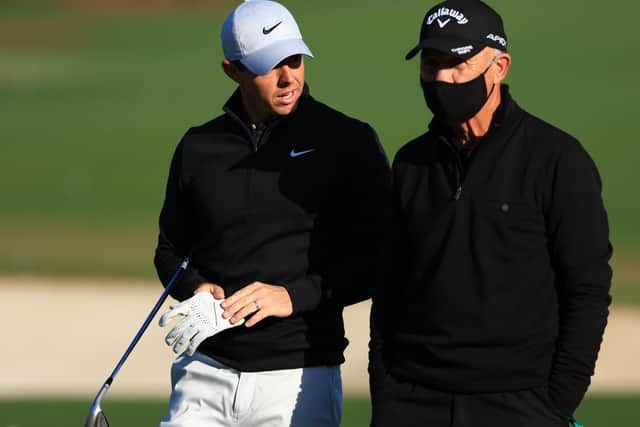

“What am I going to do? Gardening?” he says with a laugh.
Advertisement
Hide AdAdvertisement
Hide Ad“Covid has made me realise you cannot just sit and do nothing. Retirement wouldn’t work with me. I couldn’t just sit and do nothing, and garden. You can’t even go out to places now.
“You’re better off biting the bullet.”
The bullet for Cowen is the logistical nightmare he now faces criss-crossing the Atlantic multiple times a year.
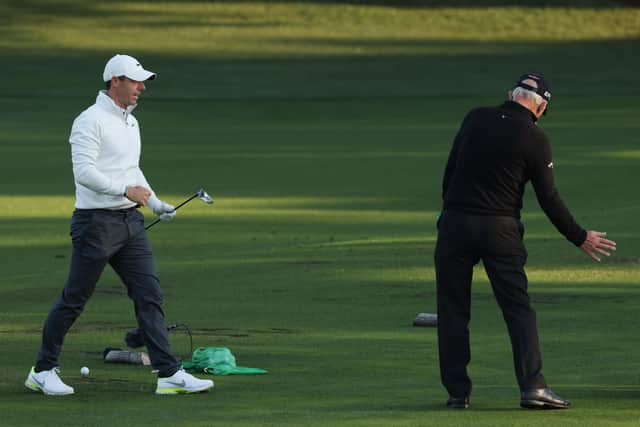

Most of the players he coaches now play on America’s PGA Tour, meaning he has to have numerous Covid tests and a special exemption from the US Government to travel to the States to satisfy his clients.
“There’s no point going for a week at a time,” says Cowen, who adds that he is too old to move out there permanently.
Advertisement
Hide AdAdvertisement
Hide Ad“I went for a week before Augusta but that was pretty much a waste of time because we couldn’t get much done beforehand.
“So ahead of the US PGA I went out there for a month. I was in West Palm Beach working with Rory, Brooks, Gary Woodland, Victor Perez, Branden Grace, Ian Poulter, Henrik – all those living out in Florida, so I got a lot of work done before the PGA.
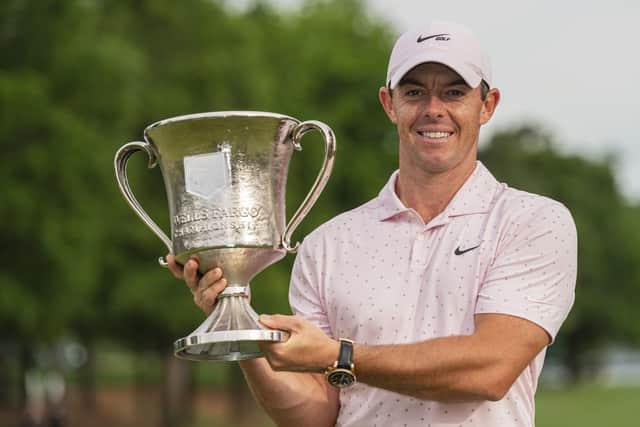

“I did three days with Brooks, three days with Rory, a couple of days with Woodland, a day with Poults, six days with Stenson because he’s the most demanding. But then you’ve got Victor who’s not very demanding and Graeme and Branden who aren’t very demanding, each of them half a day.
“They have what they want on demand. But each of them is different. It’s great when players say ‘I’m fine, I’m swinging it great and I’m hitting it great, I’ve just got to get on and do it’. That’s what you want to hear.”
Advertisement
Hide AdAdvertisement
Hide AdFor all the success Koepka has enjoyed – he nearly made it five major triumphs in four years at Kiawah Island last month – it is the work he is now doing with McIlroy that has put Cowen back in the spotlight.
McIlroy came to Cowen at the turn of the year when his quest for more distance off the tee destroyed his game.
The alliance was not as black and white as Cowen replacing McIlroy’s long-time coach Michael Bannon, but the influence of the Yorkshireman is already bearing fruit with the Ulsterman winning at Quail Hollow two weeks before the PGA for a first tournament success in two years.
“Rory is almost too high-profile, he gets so much attention,” says Cowen.
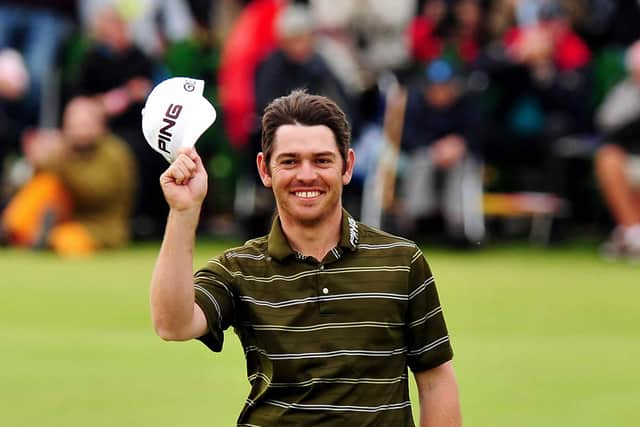

Advertisement
Hide AdAdvertisement
Hide Ad“The expectations go up so high. He won Quail Hollow and everyone put him down then to win the PGA which was ridiculous. That was the first time he’d won in two years.
“I’ve known Rory since he was 13, I was Irish coach at the time helping the Irish Federation with their kids. And I’ve helped him before, I’ve given him little tidbits, he’ll say to me ‘I don’t think I’m swinging it very well, what do you see?’
“I still class Michael as his coach as he’s coached him since he was eight years old.
“It’s always been one of those things where I’ve helped out in the past. It’s not totally new.”
Advertisement
Hide AdAdvertisement
Hide AdThe big question in European golf is can Cowen get McIlroy back to where he was?
“Back to where he was is a difficult one,” responds Cowen. “He hasn’t won a major for seven years which is a long time. He’s won other tournaments, so it’s not those that are the problem, because he is going to be judged by how many majors he wins.
“For him to win more majors he’s got to be very, very confident in every department of his game. He feels he hasn’t driven it as well as he should do over the last 18 months, two years, he just feels that he needs the confidence in his ability to go and do that, to hit the shot at the right time.
“You’ve got to have ultimate faith in your technique.”
That is where Cowen comes in. He wasn’t always a coach, he was a player himself in the 1970s and 80s, appeared in the Open Championship a handful of times and won a tournament in Africa.
Advertisement
Hide AdAdvertisement
Hide AdHe started coaching while head professional at Lindrick and was so in demand he chose to go full-time in 1997.
If he sounds busy now, it is nothing he believes compared to the turn of the century.
“I had most of the best players in Europe in the late 90s, early 2000s,” he reflects. “I had Bjorn, Westwood, Clarke, Howell, McGinley. I remember at the Scottish Open I had 17 players all by myself. I walked out onto the range one day and all 17 were on the range – so I just turned round and went home. I couldn’t win that one.”
So what’s the key to this longevity? Why is he so sought-after?
Advertisement
Hide AdAdvertisement
Hide AdCowen has a reputation for being the gruff old Yorkshireman who is not afraid to give his player, no matter who they are, a good rollicking.
Koepka needed one early in 2017. Cowen noticed that, delivered the sermon and Koepka won his first major at the US Open at Erin Hills that June.
A flag from the 18th green adorns the walls at Cowen’s Golf Academy in Rotherham from Koepka to Cowen: ‘Thanks for the kick up the arse,’ it says.
But as he finds with the players that need three days work as opposed to those that only need one, each pupil is different.
Advertisement
Hide AdAdvertisement
Hide Ad“A good coach in any sport, if you’ve done your job you should almost be obsolete, shouldn’t you?” he asks rhetorically.
“It’s like Sir Alex Ferguson. He did more mentally for the young kids than anything other than coaching techniques, he allowed them to play football, he allowed them to express themselves, and the kids didn’t get stage fright.
“He kept just throwing a new player in occasionally that gave the kids a little bit more.
“With me, I’ve always said it’s like the placebo effect; they join me, a bit like Rory has, and they think now I’m all right, it calms them down, it gives them confidence and off they go.
Advertisement
Hide AdAdvertisement
Hide Ad“A lot of them have their own psychologists but as I say to all my players, if I don’t do my job it’s very difficult for a psychologist to do theirs.
“If you can’t start the ball where you want to and it’s going all over the place, and then the pyschologist says to you think positive when you’re on the first tee, I think that’s a stretch too far.
“If you’re going to do any good you need complete faith in your swing.”
For all the success, all the experience and the star-studded stable of names, Cowen knows how quickly sport can change and what he must do to stay at the top of his game.
Advertisement
Hide AdAdvertisement
Hide Ad“Coaching evolves all the time, it’s got to, and I’ve got to evolve as a coach, whether it’s technology which we have to have, or whether it’s learning more about yourself,” he says.
“Sometimes I’ll ask the psychologists on the range, Bob Rotella particularly, ‘did you see anything there that I probably shouldn’t have said or I needed to say?’ They’ll help you out.
“I’m self-evaluating all the time. Technique is one thing, that’s the easy part of it, but getting somebody comfortable in a very uncomfortable situation is very difficult.”
His admiration for Sir Alex Ferguson is obvious when asked about which coaches he admires.
Advertisement
Hide AdAdvertisement
Hide Ad“You look at people who are successful. There was an argument that Arsene Wenger was a better coach than Alex Ferguson and I just say ‘the only thing you can judge a coach by is results’ and Ferguson’s results were miles better than Wenger’s.
“What do you judge a coach by? How do they get jobs? Results. People might say I’m the No 1 coach at the moment. I wouldn’t say that, because there’s somebody out there with better knowledge and better expertise, but I tell you what I am No 1 at – results.”
Dozens of the best male golfers over the past quarter of a century would agree.